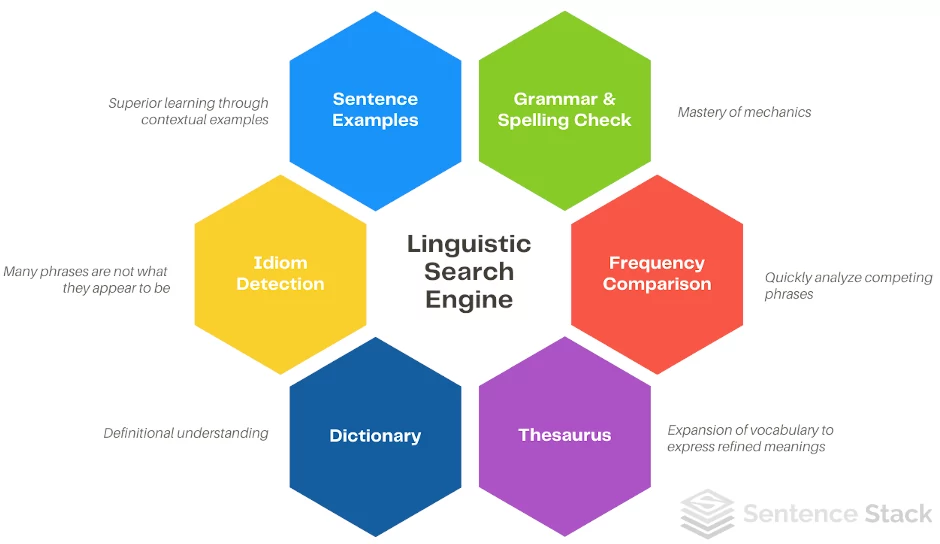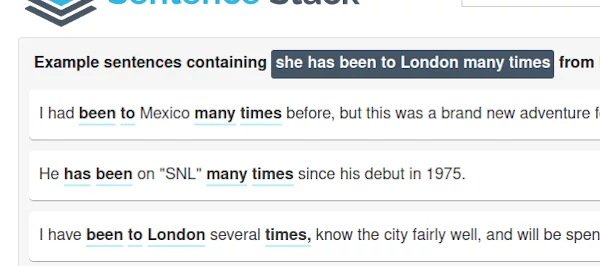Linguistic Search Engine
Overview - What is a linguistic search engine?
We are familiar with Internet search engines that allow us to find websites and other online resources, but relatively few are familiar with linguistic search. A linguistic search engine (LSE) facilitates learning and exploration of a language through advanced search features. These may include contextual sentence examples, idiom detection, grammar/spelling correction, phrasal frequency comparison, collocations, and more.

More Than Just Sentence Examples
The abundance of free text corpora has caused a proportional abundance in example sentence websites. While these are powered by a searchable database of sentences, this is generally where the similarities end. In addition to a large corpus of sentences, a linguistic search engine includes several distinguishing features.
Advanced Search Features
Most sentence sites can handle single word searches, but they tend to fumble on generalizing to include near matches. Entering in a single word at a time? Any sentence search website will work for you. Searching for the best phrasing or uncertain if your phrasing is correct? Then you want a linguistic search engine. Consider the search for "she has been to London many times". A popular sentence database website yields no results.
A linguistic search engine is designed to allow users to enter in sentences and imprecise phrasing with the goal of bringing up relevant search results, so it's no surprise that the results from this LSE are likely very helpful to the person searching for this phrase.

In addition to more advanced ranking of search results, an LSE usually includes specialized searches such as a comparison search that identifies the relative frequency of two phrases. I never seem to remember if it's better to say a lot or alot, but now I've got a tool that will always jog my memory.
Another common search type is a fill-in-the-blank search that lists potential candidate words that could be used to, well, fill in the blank. Can you predict what will come *?
Integrated Linguistic Tools
The advanced search features mentioned above are great and certainly merit the label of sentence search engine, but an LSE requires other linguistic tools to be built-in to the search. Some examples may include, but are not limited to:- Dictionary
- Spelling & Grammar Check
- Reverse Dictionary
- Thesaurus
- Pronunciation and/or Audio
- Translation
Case Study: Sentence Stack
Sentence Stack is the world's largest and most popular linguistic search engine. More than 300 million sentence examples are at your finger tips along with an integrated dictionary, thesaurus, and grammar checker. Idioms entered are automatically detected and explained. Translation is included as well. All of this is 100% free. What are you waiting for! No downloads, no logins, no limits.

